PIPELINE AND PIPING DESIGN, OPERATIONS, INSPECTION, MAINTENANCE, REPAIR, INTEGRITY AND REHABILITATION (ASME B31 & API 579 STANDARDS)
Course Description
Objectives
Upon successful completion of this course, each participant will be able to:
• Apply the latest techniques on pipeline and piping design, operations, inspection,
maintenance, repair, integrity and rehabilitation in accordance with the latest ASME and API codes and standards
• Evaluate the fitness for service including wall thinning, remaining life, general and local corrosion, analysis of dents and cracks in piping and pipelines
• Classify the causes of vibration in service as well as measure, analyse and resolve
vibration
• Define pressure transients and enumerate its four classes such as pump station
transients, two-phase liquid-vapor transients, two phase liquid-gas transients and gas discharge transients
• Analyse weld properties, heat treatment, liquid penetrant and ultrasonic testing as well as identify the different types of flanges, gaskets, bolt selection, tube fittings and different kinds of bending.
• Carryout pressure and leak testing prevent mechanism degradation due to corrosion and employ new ASME repairs standards
• Demonstrate different repairing techniques
Who Should Attend
This course is intended for engineers, maintenance technicians and inspectors
responsible for the integrity, maintenance and repair of pipelines and piping systems. The fitness-for-services and integrity are based on
quantitative analysis, please bring a calculator.
Training Methodology
This interactive training workshop includes the following training methodologies as a percentage of total tuition hours:-
50% Lectures
30% Workshop & work presentations
20% Case Studies and Practical exercise
Accreditation
Reference
Course Outline
A five-day in-depth course on the practical aspects of piping and pipeline design, integrity, maintenance and repair. Participants will be introduced to the technical basis of the ASME and API integrity rules, and their application to case studies and exercises.
The participate will be able to recognise causes of degradation in-service, whether mechanically induced (pressure, vibration, fatigue, pressure transients, external damage) or due to corrosion (wall thinning, pitting, cracking), and apply integrity analysis techniques to make run or repair decisions.
The participants will become knowledgeable in the technical basis and application of ASMEB31.3, B31.4 and B31.8 piping codes, and API 579 Fitness-for-Services and Flaw Evaluation.
The participants will review inspection techniques, from the most common (PT, MT, UT, RT, MFL pigs) to most recent (AE, PED, UT pigs and multi pigs). And the implementation of integrity management programs, periodic inspections and evaluation of results.
The course will review the various repairs techniques, their advantages and shortcomings, and the logic to be followed in making repair decisions and selecting the applicable repair.
Download Course Brochure
Upcoming Dates
There are no courses currently available. Please check back later.
